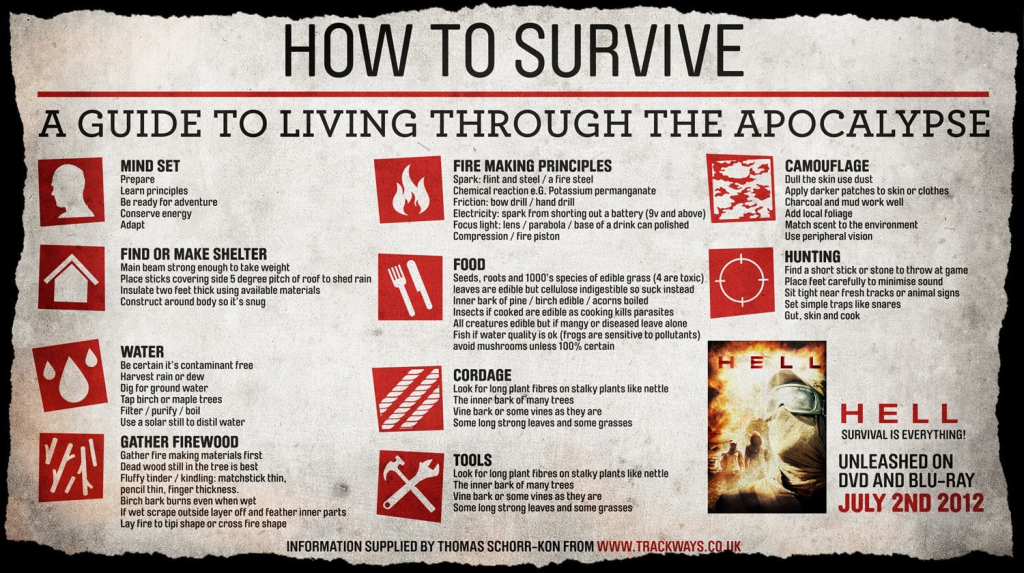In a world rife with uncertainty, learning how to manage stress during an apocalypse becomes crucial for survival. As we grapple with escalating anxiety linked to climate change, pandemics, and technological upheaval, effective stress management strategies can be our lifeline. Psychology teaches us that understanding the complexities of stress is essential, especially in times of crises like surviving an apocalypse. By embracing community support, evaluating risks, and developing coping strategies for anxiety, we can better navigate these tumultuous times. Ultimately, the psychology of stress reveals that our responses to adversity can shape our resilience and success when faced with overwhelming challenges.
As we confront the potential for societal collapse and global disruptions, understanding the importance of stress regulation in catastrophic times is paramount. The period of upheaval we live in, often referred to as the age of crises, brings forth challenges that require robust mental fortitude and adaptive responses. Acknowledging the psychological dynamics at play enables us to construct a framework for effectively dealing with peril and communal strife. In the face of adversity, building connections within our communities not only fosters support but also reinforces our collective survival instincts. By exploring diverse coping mechanisms and embracing a proactive mindset, individuals can thrive even amidst chaos.
Understanding the Psychology of Stress in Crisis Situations
Stress, particularly in tumultuous times like an apocalypse, often stems from the uncertainty and perceived threats to our safety. According to psychology, when faced with a crisis, our brains tend to overemphasize risks, leading to heightened anxiety and stress. Understanding these psychological mechanisms is crucial for developing effective stress management techniques. By acknowledging how our brains react to perceived dangers, we begin to recognize the irrational components of our stress responses, allowing us to take a rational perspective in the face of chaos.
In stressful situations, like a societal collapse or natural disaster, understanding the stakes can help individuals focus their energy more productively. The psychology of stress suggests that gathering information about our circumstances — discerning between threats that are real versus imaginary — plays a paramount role in stress management. This approach enables individuals to categorize risks and develop targeted emotional and practical responses to the actual challenges they face.
Frequently Asked Questions
What are effective coping strategies for anxiety during an apocalypse?
Effective coping strategies for anxiety during an apocalypse include maintaining a routine, practicing mindfulness, and engaging in physical activity. Build connections with your community for support, as social interactions can significantly reduce stress levels in crisis situations. Additionally, focus on gathering accurate information to avoid undue stress caused by uncertainty.
How can community support in crises help manage stress during an apocalypse?
Community support in crises plays a crucial role in managing stress during an apocalypse. By fostering strong ties with neighbors and local groups, individuals can share resources, information, and emotional support, which alleviates feelings of isolation and anxiety. Building a reliable support network enhances resilience and provides reassurance during challenging times.
What is the psychology of stress and its impact during apocalyptic events?
The psychology of stress reveals that our reactions to apocalyptic events are often influenced by perceived risks and our coping mechanisms. Understanding how stress impacts the brain and body can help individuals develop healthy responses, such as seeking social support and focusing on problem-solving, rather than succumbing to panic or despair.
What role does information gathering play in managing stress during an apocalypse?
Information gathering is vital for managing stress during an apocalypse. It allows individuals to distinguish between actual threats and perceived concerns, ultimately reducing anxiety. By collecting diverse viewpoints and assessing situations from multiple perspectives, one can make informed decisions, helping to mitigate feelings of helplessness.
How can individuals learn to live with risk during an apocalypse?
Learning to live with risk during an apocalypse involves accepting uncertainty and cultivating a mindset oriented towards resilience. This includes practicing adaptability, prioritizing enjoyable activities, and engaging in community efforts. By reorganizing one’s perspective on risk and focusing on collaboration, individuals can navigate challenges more effectively.
What activities can help reduce stress during apocalyptic situations?
Activities that help reduce stress during apocalyptic situations include engaging in creative outlets, such as art and music, connecting with nature, and practicing hobbies that bring joy. Additionally, incorporating social activities like storytelling and community gatherings can enhance emotional well-being and foster connections that provide support.
How does fostering a sense of adventure contribute to managing stress in an apocalypse?
Fostering a sense of adventure can significantly contribute to managing stress in an apocalypse by promoting exploration and curiosity. Embracing new experiences and challenges can shift focus from fear to engagement, providing opportunities for personal growth, creativity, and building stronger community ties, all of which help alleviate anxiety.
| Key Point | Details |
|---|---|
| Understanding Risk Assessment | Identifying threats can be difficult; distinguish between actual risks and false alarms. |
| Community Engagement | Building strong community ties is essential for mutual support during crises. |
| Embracing Curiosity and Playfulness | Engage in activities that stimulate curiosity and joy to thrive under stress. |
| Learning from History | View crises as opportunities to adapt and improve our understanding of risk. |
| Collaboration Over Competition | Fostering collaborative relationships can lead to better outcomes for everyone. |
Summary
To manage stress during an apocalypse effectively, it is essential to first understand and assess risk accurately to determine what truly requires your attention. Building a community of support and engaging in playful, curiosity-driven activities can also be beneficial. By reframing crises as opportunities for growth and collaboration, individuals can foster resilience and improve their capacity to cope with future challenges. Ultimately, embracing a proactive and community-oriented mindset will not only help manage stress during an apocalypse but also lead to a more fulfilling life.
